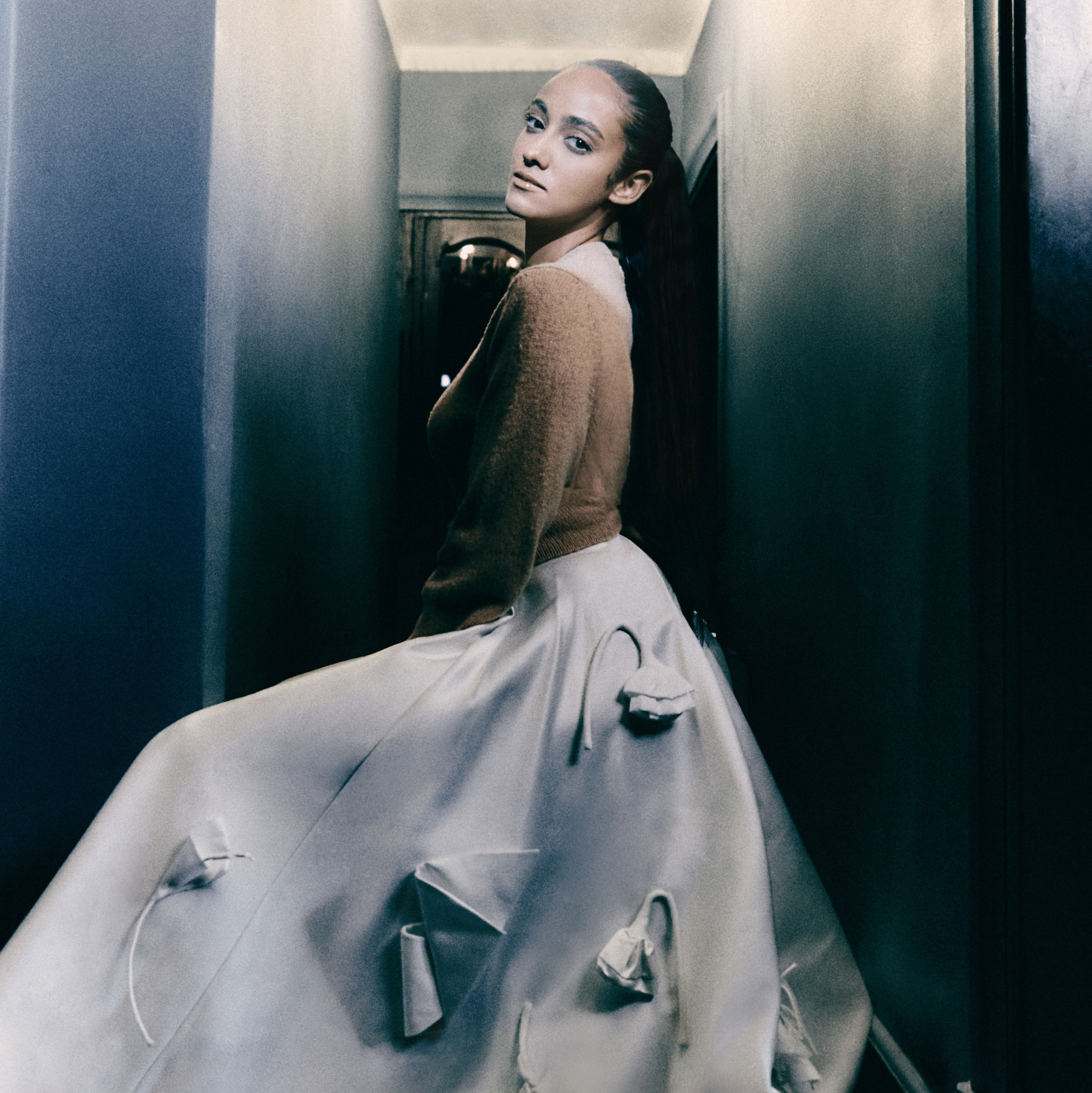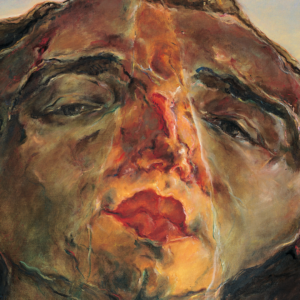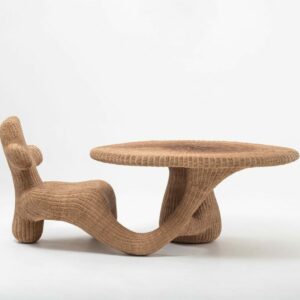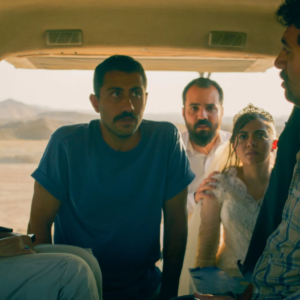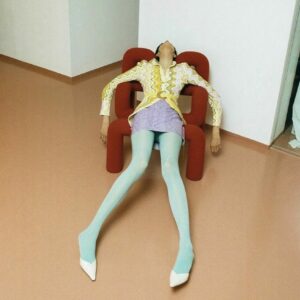It was a seemingly ordinary day when a young Haya Khairat (Instagram) and her father walked into the local Kodak store to develop their day’s work. “It was after one of those many photography tour days with my dad. We passed by the store only to discover that this entire time there was no film in the camera,” recalls Khairat, an Egyptian cinematographer and director whose work has garnered international acclaim. It was a heartbreaking revelation for the blossoming artist. “I was shooting with an empty camera the entire time.” But, what appeared to be a simple mishap actually turned into a profound lesson in the impermanence of moments. “My dad kept trying to cheer me up and told me we can go back and shoot in those places again, but I realised that no picture can be taken the same way twice, so it made me appreciate every moment for what is and that carries over into my work today.”

This Kodak store episode was not an isolated incident – it was one chapter in an unfolding formative narrative often shaped by her father’s guiding hand. “When I was younger, my dad used to take me around Cairo to photograph the city,” she shares fondly. These father-daughter outings were beyond just bonding moments. “These tours helped shape my storytelling skills. It made me hone in more on capturing something in its most authentic form.”
Her father’s influence extended beyond just the technical aspects of photography. “He always encouraged me to be courageous and go for the shot. He taught me how to observe, analyse and capture people without fear or anxiety,” she says. “He made me feel fully comfortable with the camera.”
“These trips made me feel more connected and in tune with the street and the people.” Her words unveil a profound connection to her roots, one that has deeply influenced her cinematic vision. “Until today, I feel like I’m always in sync with the street.” Her relationship with Cairo’s streets is symbiotic. She absorbs the essence of the streets, and they, in turn, find a voice through her lens.

Khairat’s lens is an extension of her gaze: “My storytelling style is raw, simple, relatable and most importantly, human,” she says. “It’s as if I’m still that seven-year-old girl, wide-eyed, taking in the world around me. Not much has changed. I have this innate and overwhelming feeling that I need to channel and capture the real, raw emotions of people in my work. Not just a niche minority, but ordinary people and ordinary emotions. There’s something special about that.”
As she grew older, her passion for film never waned. “Since I was a child, I was always fascinated by film. I never knew how I wanted to participate in the field but I know I wanted to be a part of it,” she shares. Her journey took unexpected turns, especially when political upheaval disrupted her plans. “I was initially supposed to go study in London and I got accepted to study at a university there, but then the revolution happened and all my plans changed suddenly.” That didn’t deter her. It merely rerouted her path. She applied to study Cinematography at the High Cinema Institute of Cairo, a decision that wasn’t without its challenges. “I took the long way,” she explains.
“The challenges started on day one,” Khairat says, delving into the gender disparities she faced in the largely male-dominated field. “When I was applying 10 years ago, it was a commonly known thing that they only accept one or two women for every 30 to 40 men every year in the cinematography department,” she reveals. Discrimination was not subtle. It was blatant and demeaning, with mentors suggesting she opt for roles better suited for women, like editing in an air-conditioned room. “Another one told me that I was too skinny and small to carry all the equipment,” she exclaims. “They like to think that cinematography is the most masculine job in filmmaking; I think that it’s sexism, pure and simple.”
To Khairat, the industry’s gender bias was not just an abstract concept – it was her daily reality. “There were DOPs [directors of photography] that did not want women to work with them,” she reveals, highlighting the systemic sexism she faced every day. “There were people on set, who didn’t really empathise with women. So if you were tired on set, you couldn’t show it or else they would say that you’re too soft or unable to handle the difficulties of such a hands-on and often physically demanding job.” The struggle was never about proving her skills. It was about proving her right to be there.

Even her appearance was a subject of scrutiny. “I had to change my wardrobe and my hairstyle. I’ve been told to change my shirt because it’s too short and form-fitting.” She had to adapt and try to fit into a world that wasn’t ready to accept her the way she was.” I think if I was a man, I wouldn’t have had to work this hard to prove myself. That’s the facts,” she says unequivocally.
“At the time, when I was beginning, there was a maximum of 10 women in the cinematography field,” Haya states. “And today, I don’t think there are even 50 women in the industry.” However, she has a glimmer of hope. “Now they accept around four years a girl out of a maximum of 20. Slow progress is progress. You can’t deny that,” she quips.
Her creative process is as unique as her journey. The creative alchemy begins with music. “When I get a brief, I usually sit with myself and listen to a lot of different music that resonates with the vision,” Khairat explains. “Once I find the right track, I begin writing with the music on loop. This can go on for several hours, days even. I fall asleep to it. I wake up to it. Nothing else enters my psyche. I completely isolate myself from the world.” It’s an immersive ritual, a cocoon that allows her to tap into her emotions and channel them into her storytelling. “It’s like I created a bubble, shielded by this music and [I] weave everything together inside there.”
But her inspiration doesn’t come from the obvious places, “I don’t really like to watch other videos or other works. I like to look at static images and paintings to get inspiration for the colour palette,” she says. “It’s not linear. It’s not a 1-2-3 process, but I know I always start with music and images.”
Khairat is also conscious of the stories she chooses to tell. “I choose to tell the stories that don’t get told,” she says. “Even if it’s something as simple as the emotions of a young girl, an ordinary girl, nothing special about her, just exploring her very ordinary emotions.” It’s a sentiment that resonates deeply in an industry often obsessed with the grandiose. “I feel that the industry nowadays is prone to be trendy, practical, and fast in every single way that we have forgotten about real things,” she says.

Starting as a novice in the industry, Khairat quickly honed her skills across various mediums, from TV and commercials to music videos. By 2015, she had already made her mark as a lighting script and 1st AC, working on popular Egyptian series such as ‘Afrah El Qobba,’ ‘La Totfe’ Al Shams,’ and ‘El Rehla.’
Her efforts did not go unnoticed. In 2019, the Egyptian Ministry of Culture honoured her for her contributions to the future of women in Egypt’s filmmaking industry. That same year, she also took on the role of director of photography for her debut short film, ‘Dark Chocolate,’ directed by Amr Mossa. The film won the Audience’s Best Short Film Award at the Cairo International Film Festival, a pivotal moment in her career. This accolade catalyzed her transition into directing, and she quickly found herself at the helm of a number of TV commercials and digital campaigns, including the ‘Zero Tolerance Ribbon’ FGM campaign, which won her the Silver Lynx at the 2020 Dubai Lynx Awards.
Then came Cannes, where Khairat would etch her name into history as the first Egyptian woman to win the Angénieux Special Encouragement Award. “The prize was an encouragement, [a] reward for me personally, as a filmmaker. It wasn’t for a specific work. It was for me. That made it all the more special—to be personally recognized.” she says, reflecting on the weight of the accolade given in memory of Pierre Angénieux, the late French engineer and creator of the modern zoom lens.
The award was both a recognition of her work and an affirmation of her unique storytelling style. It was a nod to her talent and a push of encouragement. “It was as if they were telling me, “Hey, we see you. We hear you. Keep going,”” she reflects.
Walking the red carpet at Cannes was beyond just a career milestone; it was a personal affirmation for Khairat. “I kept saying to myself, “I’m here. I’m here not because I’m attending. I’m here because I’m being honoured here. They know my name.”” The weight of the moment was both a crown and a cross. “It puts immense pressure on you and a big weight of responsibility on your shoulders. Like now what? How am I going to top that?”
With that recognition comes a new set of challenges and a weight of expectation that she now carries. The question isn’t about how she’ll top her past successes, but about how she’ll navigate the complexities that come with this newfound visibility and status. It’s a daunting task. But if her journey so far is any indication, it is definitely one that she is more than equipped to handle.

In the midst of her cinematic journey, Haya Khairat also reflects on the broader impact of art in times of turmoil, particularly regarding the situation in Palestine. “Art as a whole has long been recognized as a powerful tool that builds communities, shapes culture, and ignites social change,” Khairat reflects. “It has always been a mirror to societies, the sword that changes opinions, instills values, and translates experiences across space and time. It is the society’s collective memory, in a nutshell. It also heals sometimes; by making people feel they are not alone, that others can feel their pain.”
When asked if she had a message to fans and followers regarding the current situation in Palestine, Khairat emphasizes resilience and awareness. “I would like them to not give up hope,” she says. “This is when they win — when we stop sharing the truth.” Her words resonate with a call for empathy and recognition of common humanity. “The ‘oneness’ of human beings, that basic thread of humanity, is what we need to recognize more in moments of crisis,” she adds.

Khairat finds hope in the global response and the enduring spirit of the Palestinian people. “This is an awakening,” she observes. “Seeing the Palestinian faith and resilience gives me hope. If they can hold onto hope for 75 years, how can I not?”
For more arts and culture stories, like this about Haya Khairat, visit our dedicated pages.
